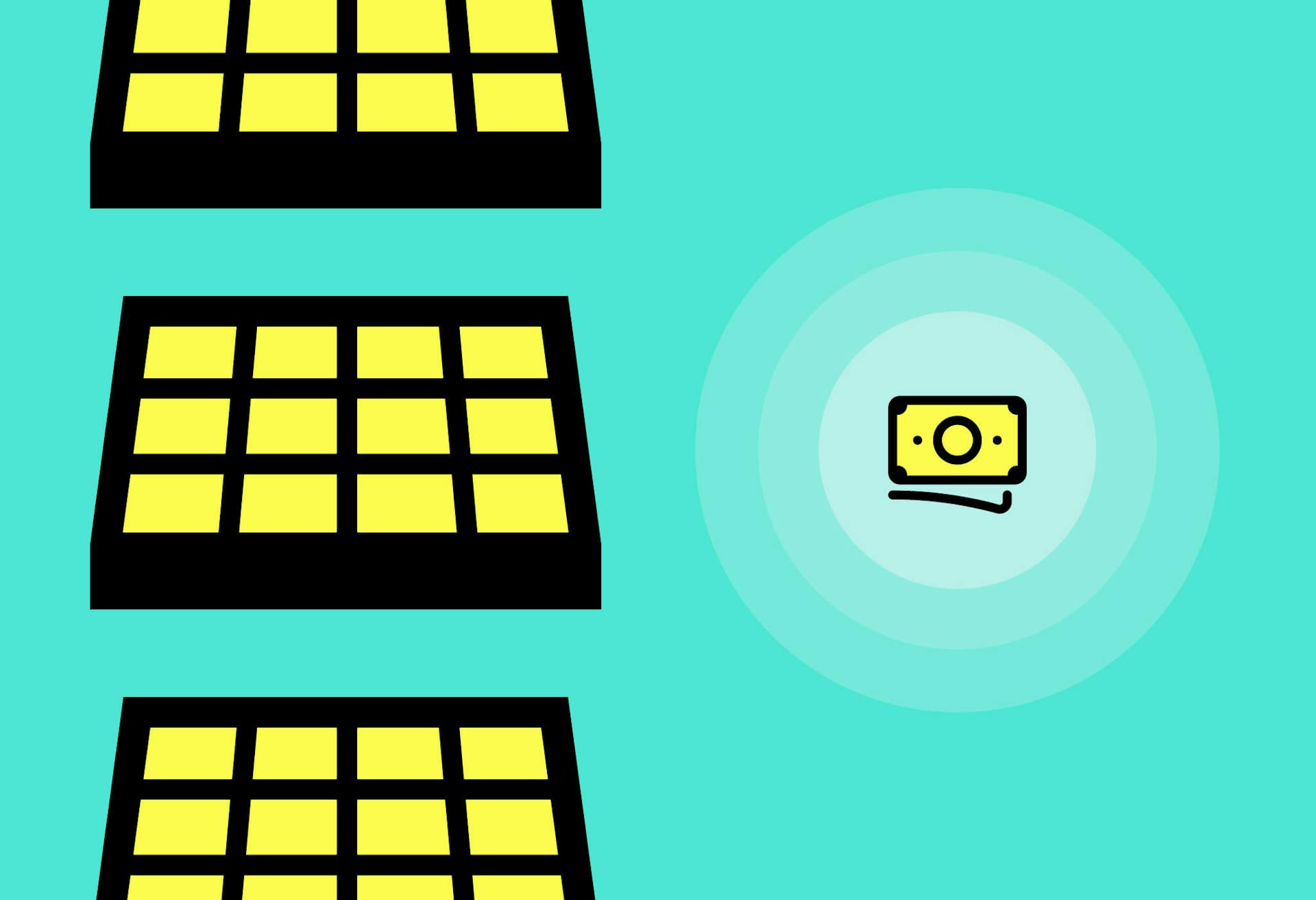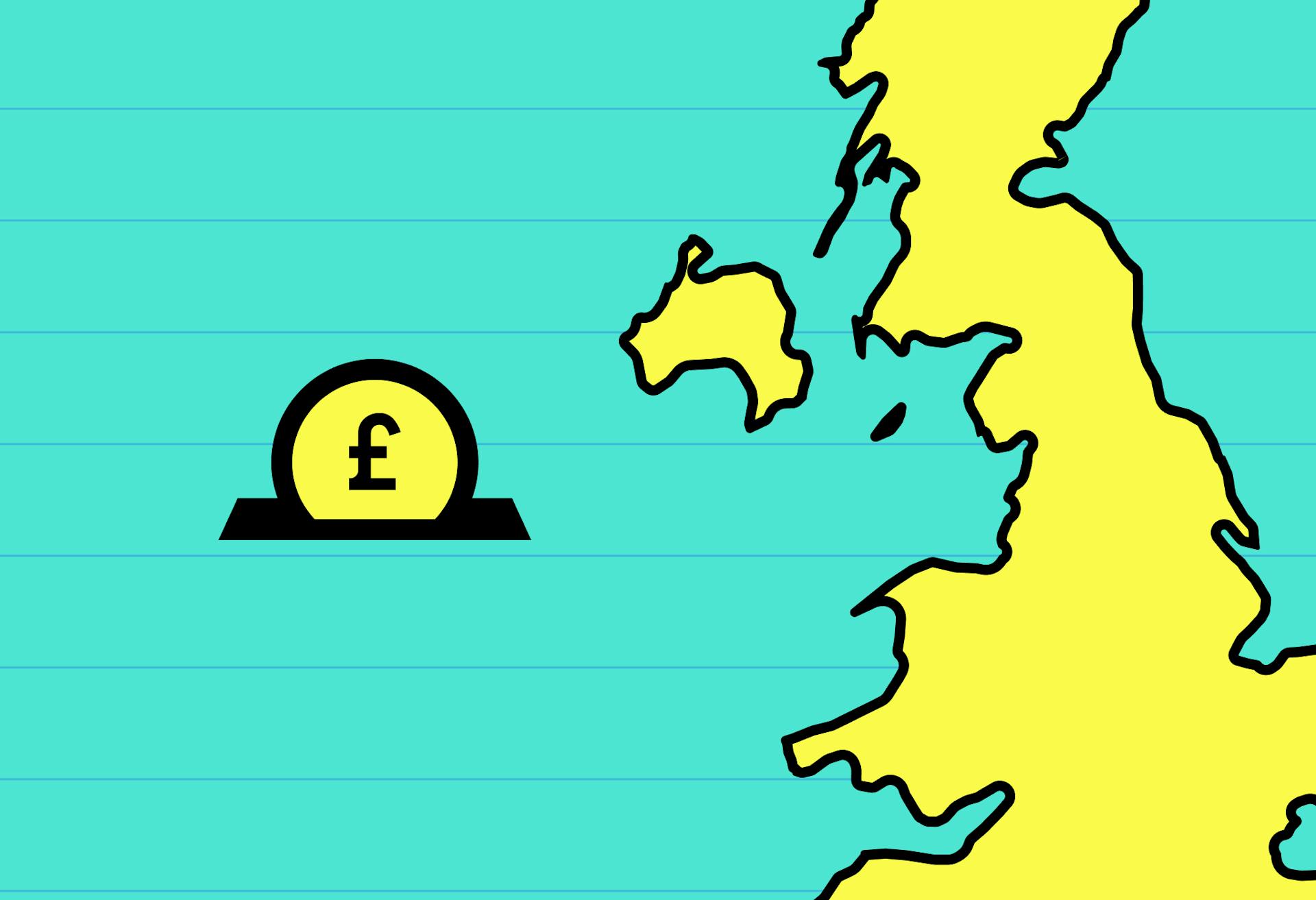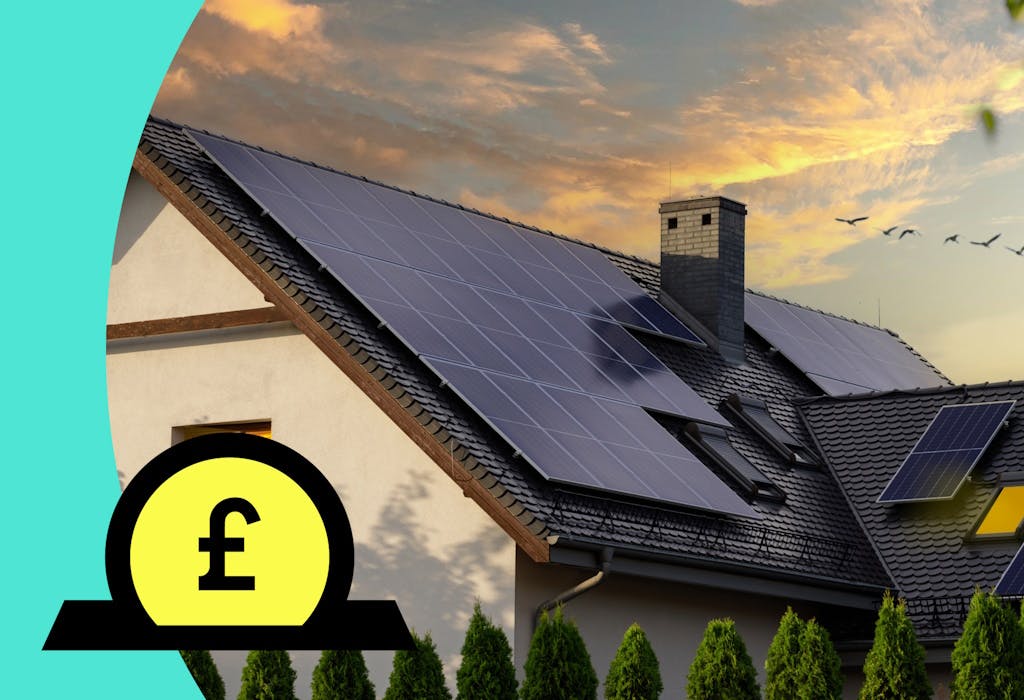- Solar advice hub
- Costs
- Used solar panels: are they a good idea?
Used solar panels: are they a good idea?
It's temping to buy cheap, second-hand solar panels instead of getting a brand new system - but is it worth the risk?


Why you can trust our content
We know that the solar industry is full of misinformation, but we only use reliable sources, including:
- Our experienced solar experts, installers and system designers
- Our own database of solar & battery system designs
- Authoritative bodies like MCS and the UK government




At a glance
The temptation to buy second-hand solar panels is real, especially given their attractive price tags. But you should think twice before committing - while the initial savings may seem significant, they often come at a hidden cost.
Keep reading to find out why used panels aren't a great idea for most homes and to learn what better cost-saving options are available.
To find out how much a brand new solar & battery system could save you, answer a few quick questions below and we’ll provide an estimate.
Should you buy used solar panels?
Used solar panels might seem like a smart financial move for a green energy solution, but they can come with many issues, including defects that lead to significant maintenance issues.
For instance, second-hand solar panels can suffer from degraded efficiency, meaning you won’t save as much on your energy bills as you might expect. Plus, the likelihood of frequent repairs can quickly eat into any initial financial benefits you might have otherwise gained.
Investing in new solar panels guarantees better performance, a longer lifespan and, ultimately, more savings.
Why are used solar panels risky?
While the allure of used solar panels lies in their upfront affordability, there are several significant risks that mean you probably won’t get good value for money. These are:
- No installation support
- No export income
- Low efficiency and low output
- Maintenance issues
- Poor appearance
- Short lifespan
No installation support
One of the most significant risks of buying used solar panels is the lack of installation support.
When you search for used solar panels online, you’ll typically find listings on e-commerce platforms like eBay and Alibaba/AliExpress, not on professional installer websites. This means you’re purchasing just the panels, without the expertise of a certified installer.
Installing the panels yourself poses huge safety concerns if you’re not an MCS or Flexi-Orb certified installer, and so we do not recommend it. An improper installation will also cause performance issues, which will minimise how much you can actually cut your energy bills by.
And if you do want to sidestep the process of installing the system yourself, it’s tricky to find a reputable installer that will be willing to work with second-hand hardware.
No export income
If you’re not an MCS or Flexi-Orb certified installer, a solar panel system you've installed yourself will not be properly certified.
And having one of these certifications is a requirement for all solar export tariffs, so opting for used panels means forfeiting a substantial financial advantage of switching to solar.
To put it into perspective, a typical household in the UK could earn £361 per year, just from export income.
This figure is based on a home using 3,400kWh of electricity per year (which is the UK average) with solar irradiance of 850kWh/kWp, a 4.4kWp solar PV system, and a 5.2kWh battery.
The home is signed up to E.ON’s Next Export Exclusive for export, E.ON Next Drive for import, and exports 65% of its solar electricity.
Low efficiency and low output
Used solar panels will have already experienced natural degradation from previous use, so their efficiency will be diminished compared to that of brand new panels.
The average solar panel loses between 1% and 3% of its efficiency in its first year, then around 0.5% with each subsequent year. That means that, after 25 years, the average system will produce 14% less energy than it did on its first day.
A solar panel’s efficiency has a direct impact on its electricity output, so homeowners with second-hand panels will consequently see smaller energy bill savings than those who invest in brand-new systems.
Typical solar panel degradation over 30 years
Maintenance issues
Some technical experts in the industry estimate that a solar & battery system in the UK will need three maintenance call-outs across a 20-year period - one for the panels, one for the battery, and one for the inverter.
But in the case of a second-hand solar system, regular maintenance problems will become much more frequent.
Many solar panels are sold on for a reason. You could be buying hardware with slight (or major) defects that the seller doesn’t want you to know about, and you’ll only notice these defects once the system is up on your roof.
It’s important to note that used panels will rarely be covered by the manufacturer’s warranty, leaving you without recourse if something goes wrong.
This is a good time to mention that Sunsave Plus, the UK’s first solar subscription, also comes with the Sunsave Guarantee. This means that every system is protected for 20 years with 24/7 monitoring and maintenance, free replacement parts, and downtime cover. Your system will also be insured by Aviva against damage, fire and theft.
Poor appearance
If you're worried about the visual impact of solar panels on your property, opting for used ones can be a risky decision.
You could have a system that doesn't have a consistent surface or colour, and any flaws or discrepancies are likely to be noticeable to people on ground level. If you take pride in your home's appearance, this patchy and mismatched look is a big no-no.
Opting for new panels guarantees a seamless and aesthetically pleasing setup, offering the practical advantages of solar power while enhancing the attractiveness of your property.
Short lifespan
Solar panels are intended to be a long-term investment, offering energy bill savings for decades. Monocrystalline solar panels, for example, typically come with a 25-year or 30-year warranty and can potentially last up to 40 years.
In comparison, the lifespan of used solar panels can be much shorter, as you won’t know how long they’ve previously spent up on somebody else’s roof. This means you could be having to replace your used solar panels in just a decade or two, and that whole process will probably end up costing you more than if you just opted for a new system in the first place.
Sensible ways to reduce the cost of solar panels
As we've just seen, the associated risks of second-hand solar panels far outweigh the initial savings. Fortunately, there are more reasonable ways to reduce the high cost of solar installations without resorting to potentially defective, used panels.
Here are some practical strategies to make solar more affordable.
Solar subscriptions
Sunsave Plus is the UK’s first solar subscription, and it means you can switch to solar with no upfront cost - instead, you pay a fixed monthly fee for 20 years.
In many cases with Plus, it’s possible for your monthly energy bill savings to exceed your monthly payments to Sunsave, meaning you actually have more money in your pocket each year. For example, Tim saves around £400 per year with Sunsave Plus.
Your system is also backed by the Sunsave Guarantee, ensuring reliable performance for the full subscription term. It includes 24/7 monitoring and maintenance, free replacement parts, insurance, and downtime cover.
Grants
Government grants and schemes can significantly reduce the cost of a solar panel installation, offering financial help to those who meet certain eligibility criteria. These grants come in various forms, helping to offset initial expenses and make solar energy more accessible.
However, the eligibility criteria for these grants can be quite strict, often requiring specific income levels, property types, or geographic locations.
For more detailed information, visit our guide on the best solar panel grants and funding options.
Solar Together
The Solar Together scheme is a group-buying initiative that aims to lower the cost of solar panel installations by pooling demand in local communities.
But while it can offer significant savings, it also comes with risks such as a limited choice of installers, potential delays, and a variable quality of installations. Also, the bulk-buying approach might not always cater to individual needs, meaning a potential compromise on the best fit for your property.
For more details, check out our guide to the Solar Together scheme.
Summary
While used solar panels may look like an economical choice at first, the risks involved often overshadow the advantages. Exploring alternatives like solar subscriptions, grants, and group-buying schemes can offer more reliable cost-saving options.
If you're interested in learning more about how much you could save with a solar & battery system, answer a few quick questions below and we’ll provide an estimate.
Used solar panels: FAQs
Related articles

How much do solar panels cost in the UK?
Read full story
The 10 best solar panel grants & funding options UK
Read full story
Are solar panels worth it in the UK?
Read full story
Should you get a solar panel subscription?
Read full story
Written byMelody Abeni
Based in London, Melody is a specialist green technology writer who has been covering sustainability, climate action and ESG for the past five years, after gathering operational experience in green investing and financial services. She has written for various industry publications, including renewable technology advisor The Eco Experts, and she holds a Master’s degree in law from Birkbeck University.